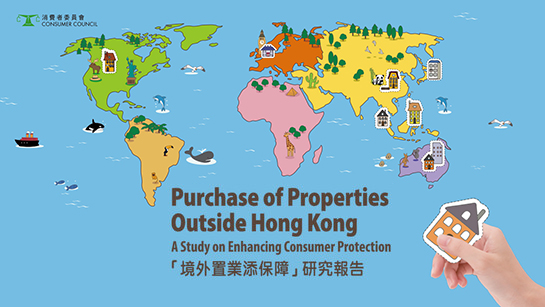PREAMBLE
Under the Consumer Council Ordinance, the Consumer Council has a statutory responsibility to, amongst other things, encourage business and professional associations to establish appropriate codes of practice to regulate the activities of their members.
The Council carries out a comprehensive range of activities including collecting and disseminating information on goods and services and tendering advice on matters that affect the interests of consumers. Through these and other ongoing activities in consumer education and complaint handling, the Council strives to ensure that consumers are well informed and are responsible in their consuming behaviour. Accordingly, the Council has published, and will continue to publish guides and information brochures for consumers to assist them in understanding their rights as well as responsibilities in the marketplace.
In furthering these objectives, the Council has produced this Good Corporate Citizen's Guide that addresses corporate rights and responsibilities.
The Council understands that a consumer protection policy strives to meet various public policy objectives of the Government which are influenced by socio political as well as economic considerations. Included amongst those objectives are measures to achieve the following:
- Improve consumer welfare;
- Protect consumers from harmful and unscrupulous trade practices;
- Educate consumers as to their responsibilities to be well informed and reasonable in the marketplace;
- Promote fair and equitable trade conduct and behaviour with respect to customers and to business associates/rivals;
- Enhance economic efficiency in all its forms, i.e. productive, dynamic and allocative efficiency;
- Guarantee economic freedom of small and medium-sized enterprises (SMEs) and consumers;
- Promote the role of SMEs due to their role in enhancing dynamic efficiency in the economy;
- Protect the process of fair competition, especially when the dynamism brought about by the entry of SMEs into the marketplace is threatened by unfair trade behaviour of large business enterprises; and
- Promote social harmony in the community, in particular, between Government, businesses and consumers so as to assist in easing social tensions.
In preparing this Good Corporate Citizen's Guide, the Council is conscious of the many objectives of Government, the business community and consumers, and that it is important to maintain an environment that balances those objectives. The Council is fully aware that because the ultimate objective is to enhance economic efficiency, the aspirations of both consumers and the business community are not incompatible, but are interconnected.
THE MEANING OF CORPORATE CITIZENSHIP
Corporate citizenship recognises that businesses have a responsibility to respect the individuals, the community and the environment in a way that when devising or implementing any rightful business strategy they will abide by laws and regulations, and adhere to high ethical standards.
Individual citizens also have responsibilities and rights. Together with corporate citizens these entail a set of social values that provide a benchmark upon which they can perform their respective roles in harmony with the wider community, for mutual benefit.
Broadly speaking, the social responsibility of businesses covers the following six principles: maintaining a high standard of business ethics; working as part of the community; protecting the environment; providing good corporate governance; and engaging in fair trade and business practices, as well as fair workplace relations.
The Council believes that when businesses apply high standards of service, thereby instilling consumer confidence in their products and services, they ensure that not only will the business succeed in its endeavours, but also that the community as a whole will benefit from the positive effect this has on maintaining dynamism in the economy. The standards are formed around the following aspects of business practice:
- Advertising and Marketing
- Price Indication
- Contracts
- Quality of Goods or Services
- Safety of Goods or Services
- Sustainable Development
- Electronic Commerce
- Privacy
- Equal Opportunity
- Anti-corruption
- Fair Competition
- Complaint Handling
The Council encourages businesses to observe the principles as identified in this Guide in their actions in the market place.
To further assist trade associations in considering what matters should be incorporated into their rules and codes of conduct, the Council has also prepared suggested Rules addressing some of the principles set out above in this Guide. There are many trade associations in Hong Kong that cover a variety of different goods and services, and which operate in different commercial environments. Accordingly, the suggested Rules drafted by the Council should be seen as a resource. The Council encourages the associations to use the suggested Rules in whole or in part and amend them to suit their own particular circumstances.
The suggested Rules are:
- Trade Practices Rules
- Complaint Handling Rules
- Fair Competition Rules
These may be supplemented by further rules and other documents to take account of changing circumstances. For example, the Council is contemplating a paper on the rights and responsibilities of consumers.
ADVERTISING AND MARKETING
- Properly informed consumers will have confidence in dealing with a business. A good corporate citizen should provide information to consumers about the goods and services offered including after-sales services in an honest, open and helpful manner.
- All advertising and marketing materials should be truthful, fair and reasonable in providing customers with adequate information on which to base purchasing decisions. They should not contain misleading information and should comply with all relevant legislations, codes and rules.
- If comparative advertising is used, the goods or services being compared should be reasonably similar; and the comparison should be valid for the life of the promotion.
- All forms of price advertising or price comparisons should be genuine and accurate, and the savings implied should have real substance.
PRICE INDICATION
- The price of goods or services is usually the most important factor in consumer choice. According to the Council's statistics, most consumer complaints are brought about by unclear or misleading price indication. Businesses should therefore pay special attention to price indication.
- With regard to price indications, consumers should be provided with complete and truthful information on the real overall price of the goods or services.
- To avoid confusion, the total price to be paid by a consumer of a specific item of goods or service should be clearly and prominently displayed, and should be expressed in common terminology.
- In using direct mail to attract consumers, businesses should not assert a right to payment if a customer does not choose to "opt out" of an offer. Where customers are minors, businesses should exercise restraint.
- If gifts, prizes or other free items are promised, they should be made available, and at no extra charge to consumers.
CONTRACTS
Businesses and consumers may enter into contracts for the purchase of goods or services. No matter whether they are made verbally or in writing, all provisions in contracts must be fair and reasonable. Guidelines to observe would be as follows:
- Provisions in contracts should not be drafted in a way that are slanted unreasonably towards the provider of the goods or services in question.
- Contracts should be written in plain language.
- The relevant contract terms for defining the extent of rights and obligations should be brought to the attention of the consumer in the language chosen by the consumer. Chinese language contracts should always be available.
- An acceptable font size should be used that makes contracts easy to read.
- There should be clear provision, in a prominent place or highlighted, of important terms of a contract; particularly those which affect the consumer's interest such as penalty for consumers defaulting in the contract.
- A general unilateral power of variation that could be used against the consumer's expectations when accepting the contract should not be expressly given.
- A receipt should always be given to consumers upon receiving payment.
- Warranties that are provided to consumers should clearly state the terms and conditions that apply.
QUALITY OF GOODS OR SERVICES
- Businesses that aim to succeed in the marketplace should secure consumer confidence in their goods and services. Good corporate citizens should:
- observe high standards in their goods or services;
- have a policy that guarantees all goods or services provided are of merchantable quality;
- have a policy that guarantees all goods or services provided are fit for the purpose;
- have a policy that guarantees, at the very least, that refunds will be provided where goods are not of merchantable quality or fit for the purpose; and
- ensure that services will be provided with due care and skill
- observe high standards in their goods or services;
- For more detailed suggested Rules addressing the above principles numbered 1 to 4, please refer to the related Council document 'Trade Practices Rules - Reference for Industry Codes of Conduct'.
- Businesses that aim to succeed in the marketplace should secure consumer confidence in their goods and services. Good corporate citizens should:
SAFETY OF GOODS OR SERVICES
One of the basic consumer rights is the right to safety of goods or services. In Hong Kong, there are laws and regulations imposing a duty on manufacturers, importers and suppliers of certain goods or services to ensure that the goods or services they supply are safe. In addition to observing laws in Hong Kong that provide safety standards, and keeping the safety of consumers in mind, good corporate citizens should:
- have mechanisms in place whereby safety considerations become part of the daily process of goods procurement, storage, presentation and delivery;
- maintain appropriate internal compliance measures with regard to all industry regulations; and
- have procedures in place to quickly and efficiently warn consumers of potential problems, and to effectively recall any faulty goods.
SUSTAINABLE DEVELOPMENT
To promote sustainable development of our environment, good corporate citizens should:
- use environmentally-friendly materials and processes in manufacture and packaging;
- encourage environmentally-friendly design;
- take into consideration the optimal life-cycle in terms of repairability and upgradability of the goods;
- improve recyclability;
- provide information on how to dispose of goods in the most environmentally-friendly way;
- provide alternatives to buying new goods, such as sharing, refill, buying used goods, or using a service instead;
- apply internationally recognized and updated standards in making green claims[1]; and
- participate in eco-labelling schemes of good standing where they apply.
ELECTRONIC COMMERCE
Traders selling goods or services through electronic commerce should ensure that their conduct is in accordance with internationally acceptable standards[2] and that their websites are constructed in a way that clearly indicates:
- information about the identity of the business including the legal name and geographic address;
- accurate information describing the goods or services offered;
- guarantees, warranties or other provisions relating to after-sales service; any cooling-off period;
- terms of delivery including the time period of delivery;
- conditions related to return, exchange, cancellation, or refund policy; and
- contact information for consumers if they have problems with delivery or other queries, such as the physical address for return of goods and a telephone number.
PRIVACY
Good corporate citizens will respect the privacy of their customers. Customers who feel that their privacy is under threat will be hard pressed to have trust in a business. Good corporate citizens should observe appropriate privacy legislation and relevant guidelines, and in particular:
- have appropriate mechanisms in place to ensure the security of consumer transactions and privacy of consumer information; and
- make the mechanisms clearly known to customers so as to establish a welcome bond of trust between the customers and the businesses they are dealing with.
EQUAL OPPORTUNITY
To promote a fair and inclusive society, good corporate citizens should have equal opportunity principles into all aspects of their organization and operation. In addition to observing laws in Hong Kong on equal opportunity, good corporate citizens should:
- at all times promote the concept and raise awareness of the principles relating to equal opportunity;
- not discriminate against customers with a disability, or on the ground of family status, sex, age or race in the provision of goods or services; and
- adopt a helpful approach by making available to any customer goods or services on the same terms and conditions as for other customers.
ANTI-CORRUPTION
Good corporate citizens should have the responsibility to ensure that the goods or services they provide are not only reliable, effective and efficient but also that their delivery to customers is free from corruption and malpractice. A corporate system control against corruption should be established.
FAIR COMPETITION
- Hong Kong is a free market that has built its success on vigorous competition. Customers expect that when they are dealing with a business that is in competition with other businesses in the marketplace, that the principle of fair competition will be observed. There is a need to ensure that competition is not only maintained at a high level, but that it is fair and seen to be fair. Maintaining high standards of vigorous and fair competitive behaviour will not only result in more customers but will ensure that the business will remain 'ahead of the pack'. Conduct between competitors or by dominant market participants that restrict competition should not be tolerated. For example, good corporate citizens should not:
- secretly agree amongst themselves regarding aspects of their products on which consumers would expect them to be competing (for example price or other product attributes); or
- misuse their market power to undermine the process of competition (for example by threatening competitors' suppliers with the purpose of deterring existing competitors from offering lower prices, or potential competitors from entering a market).
- secretly agree amongst themselves regarding aspects of their products on which consumers would expect them to be competing (for example price or other product attributes); or
- The Government recognises the importance that fair competition plays in maintaining Hong Kong's economic well being and consumer welfare. The Competition Policy Advisory Group (COMPAG), chaired by the Financial Secretary, was established in December 1997 to provide a high-level and dedicated forum to review fair competition related issues that have substantial policy or systemic implications, and examine the extent to which more fair competition should be introduced in the public and private sectors. It promulgated a 'Statement on Competition Policy' in May 1998 to provide an overarching policy framework to guide sector-specific efforts to promote fair competition. In September 2003 it issued the 'Guidelines to Maintain a Competitive Environment and Define and Tackle Anti-competitive Practices'. This provides pointers with objective benchmarks and principles to assess Hong Kong's overall competitive environment; define and tackle anti-competitive practices; as well as to ensure consistent application of Hong Kong's fair competition policy across sectors[3].
- Moreover, under the Government's sector-specific approach to fair competition policy, the Telecommunications Ordinance and Broadcasting Ordinance contain provisions governing competitive conduct in these sectors.
- In harmony with the Government's official policy, its guidelines, and legislative provisions, the Council has drafted a related document entitled 'Fair Competition Rules - Reference for Industry Codes of Conduct' that can serve as an easy reference for trade associations when they consider what rules to draft in their codes of conduct that refer to fair competitive conduct.
- Hong Kong is a free market that has built its success on vigorous competition. Customers expect that when they are dealing with a business that is in competition with other businesses in the marketplace, that the principle of fair competition will be observed. There is a need to ensure that competition is not only maintained at a high level, but that it is fair and seen to be fair. Maintaining high standards of vigorous and fair competitive behaviour will not only result in more customers but will ensure that the business will remain 'ahead of the pack'. Conduct between competitors or by dominant market participants that restrict competition should not be tolerated. For example, good corporate citizens should not:
COMPLAINT HANDLING
General Mechanism
12.1 To remain successful, good corporate citizens should have mechanisms to effectively handle consumer complaints. The ease with which customers can inquire about problems they have encountered and obtain a satisfactory response will not only ensure they have confidence in the business and remain loyal customers, but the business can quickly and efficiently address any procedural issues to prevent problems from recurring. Some basic principles are as follows:
- Focus not on who is right or who is wrong, but how the problem can be solved for mutual benefit.
- Provide easy access to procedures on how to lodge complaints.
- Ensure that complaints are dealt with in a fair manner, quickly and effectively and that staff that handle complaints are informed on the products or services and are consistently courteous.
- Provide handy locations for hearing complaints, reasonable operating hours and short waiting/queuing time.
- Monitor the service provided by complaints staff to ensure it is operating smoothly, and in order to predict future problems so as to prevent them from arising.
- Establish an open dialogue with user/consumer/community groups for practical guidance on what customers expect from the business and how best to serve them.
- Have a performance pledge that lists in detail customers' expectations, to provide services within the times specified, and to handle customer complaints to the business' best endeavours.
- Ensure that where complaints cannot be resolved in-house, customers are informed of their right to take the matter (if applicable) either to a relevant industry complaint handling scheme or the Small Claims Tribunal.
Alternative Dispute Resolution Schemes
12.2 Providing access for consumers to a dispute resolution scheme provided by a third party (for example an industry association or 'trust mark' scheme), as an alternative to requiring a consumer to seek redress through the courts or other costly mechanisms, will give consumers confidence in the firm they are dealing with and demonstrate that the firm is a good corporate citizen.
12.3 Alternative dispute resolution (ADR) schemes in which consumers can have faith should demonstrate principles of:
- Independence/Impartiality
- Transparency
- Accessibility
- Trust
12.4 The Council has prepared a related document entitled 'Complaint Handling Rules - Reference for Industry Codes of Conduct' - that provides more detailed information on how the above principles can be put into practice through the construction of relevant schemes or codes of conduct.
Business dealings between large businesses and SMEs
12.5 As good corporate citizens, large businesses should also have complaint handling procedures and ADR schemes similar to those for consumers described above to effectively handle complaints from or disputes with SMEs which have business dealings with them.
Notes:
1. For example, see ISO 14021 January 2005.
2. For example, see OECD guidelines for Consumer Protection in the Context of Electronic Commerce www.oecd.org .
3. See the Hong Kong Government's Competition Policy Advisory Group website www.compag.gov.hk .











